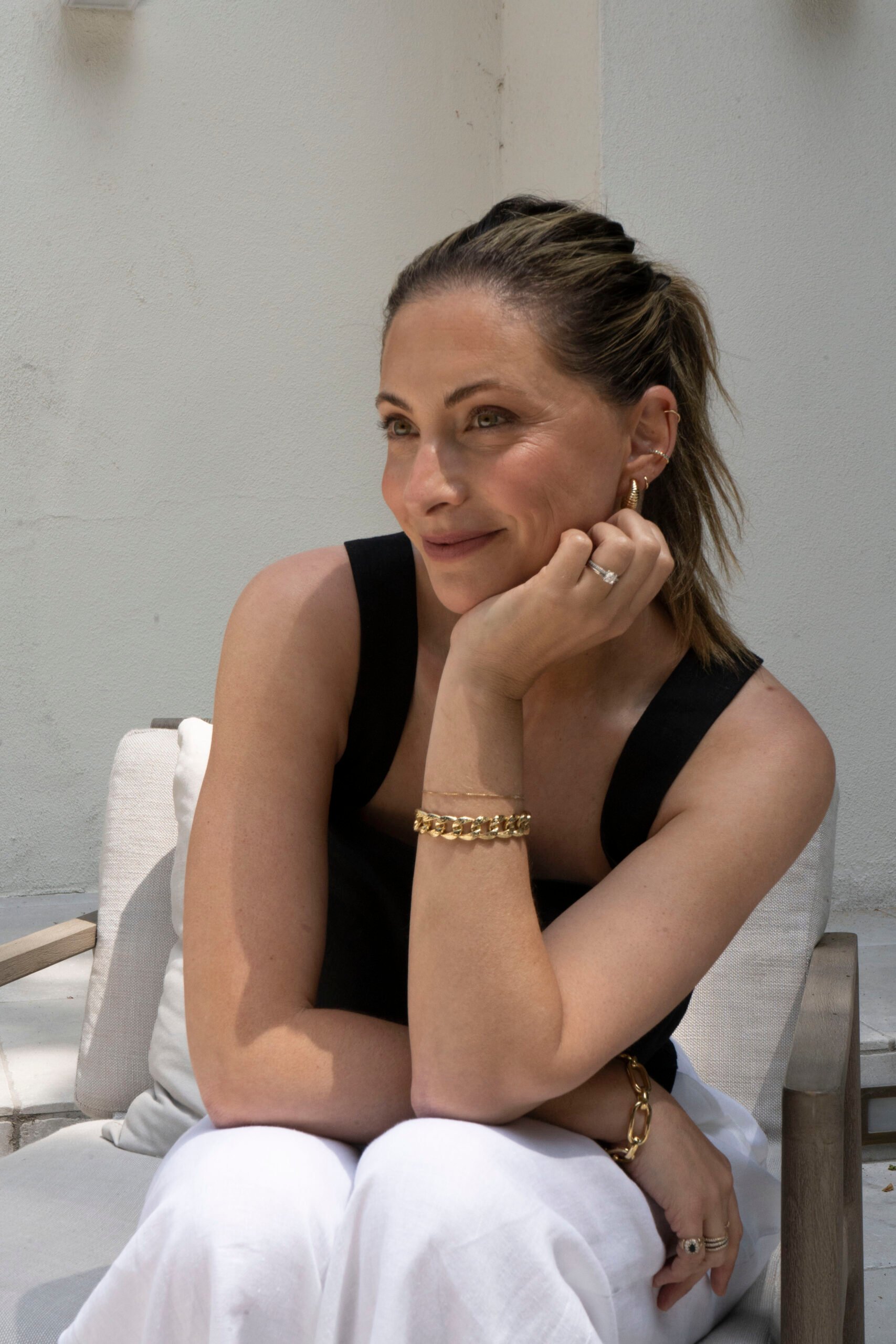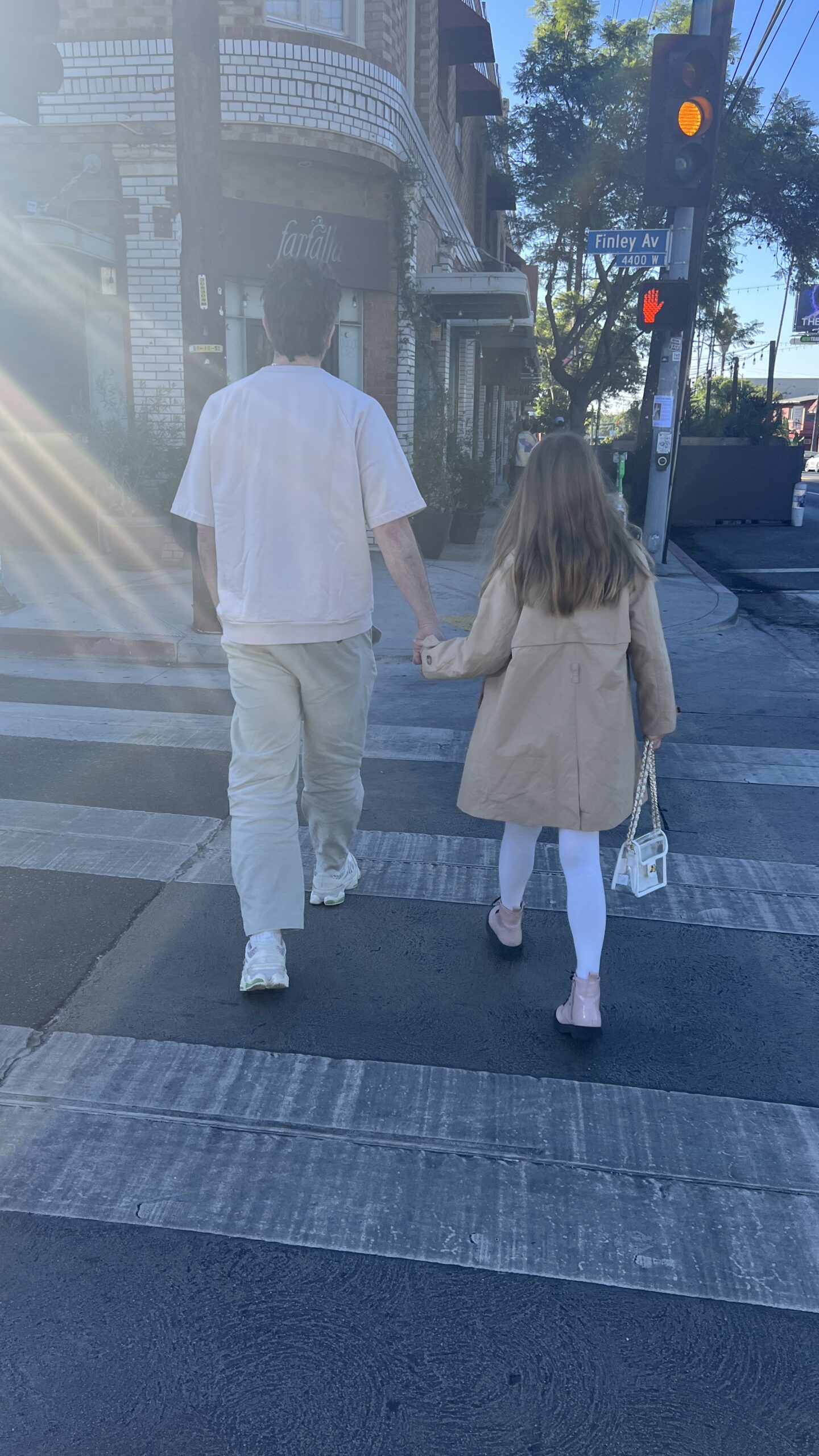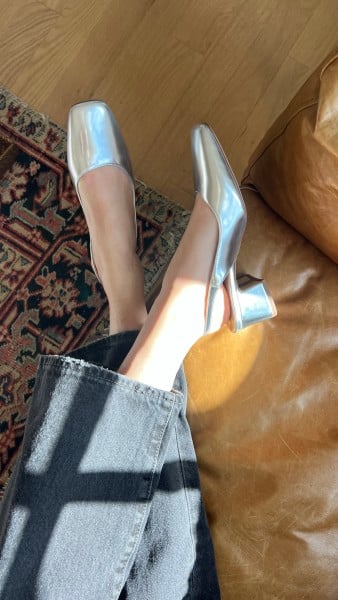
If you were to meet my husband and me for the first time, you’d notice a few things. I’m tall; he’s short. I’m midsize; he’s lean. I’m Black; he’s white. …And those are just our exterior differences. For some, it’s a lot to take in (as I’ll go more into below!). But there’s been plenty for me to take in as well over the past four years since we got married. Here are five things, from reactions to our shared reality, that have surprised me about being in an interracial marriage:
Jordan and I both come from families that never pushed the idea of “marrying someone of the same race.” I grew up in an upper-middle-class family nestled in a predominantly white suburb and, like most kids, I just wanted to fit in. If my parents had any hopes of me exclusively bringing home Black men, they were severely squandered once I had my first crush: Aaron Carter. (I even asked my parents if I could change my name to “Candy,”… as in ‘I Want Candy’)
Jordan went to a private school in Indiana and was the poster child of the nuclear family with married parents, a stay-at-home mom, and a younger sister. When we were dating, I expected to hear stories of him “needing to explain that I was Black,” as I had with previous boyfriends. But when I asked Jordan if his parents ever cared about him dating “within his race,” he told me, “They never said anything. It just wasn’t a conversation. And they’ve never said anything since we’ve been together.” Over the years, I’ve learned more about Jordan’s parents. His dad was an ally who participated in sit-ins during the civil rights movement, something he would pass down to Jordan who was protesting long before he met me.
You may think that, because our parents don’t care, we avoided comments from the peanut gallery altogether. But you’d be wrong. In our experience, it’s been casual acquaintances with something to say. The time I was most taken aback was at work. I was having lunch with a recently divorced coworker who said, “You don’t know it now, but Jordan will never be able to relate to you. He just can’t. You’ll never reach the full level of emotional intimacy than if you were with a Black man.” I was speechless. I had never experienced such a comment. I recall trying to reason with her and help her take her foot out of her mouth, but she made it clear: She meant what she said.
It’s been surprising that educated and well-intentioned people think Jordan and I have nothing to talk about because our races are different. Or that we somehow lack a level of intimacy because we’re interracial. I suppose I can’t say for certain that things wouldn’t be different if I was married to a Black man, but I have never felt emotionally detached from Jordan due to race. It’s sad to me that people can not only believe but tell someone that their marriage isn’t as valid or full of love because they’re different races.
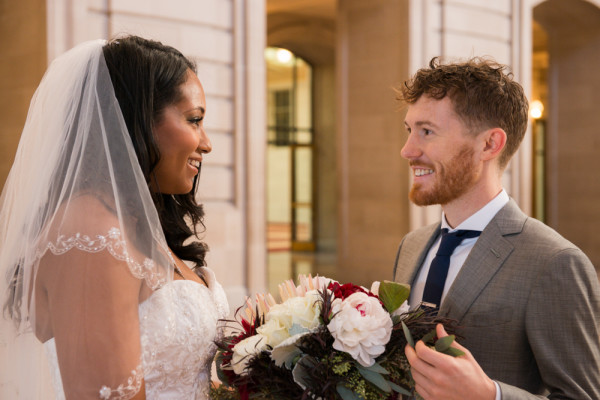
TW: Online bullying and hate speech.
Although Jordan isn’t in the public eye, he has appeared in my YouTube videos and content for partnerships. Without going into too much detail, we’ve been targeted by white supremacist trolls. It’s fascinating—it would almost be hilarious if it wasn’t so disgusting—that people believe I married Jordan to help “wash out the white race” or DM us saying that they “pray we never have children.”
We also get targeted by people who think our marriage is a fetish gone too far. Sometimes comments are mean-spirited, but there are instances where people make not-so-innocent assumptions like, “Has he only dated Black girls?” or “Did he grow up with Black people?”
These questions don’t always bother me, but depending on how it’s presented, it can demonstrate that the person asking has internalized the message that Black women aren’t desirable. The assumption implies that Jordan could only be attracted to me because he either has “jungle fever” or didn’t grow up around white women. It only further perpetuates the idea that before Jordan could fall in love with me, he had to fall in love with the idea of “being with a Black girl” first.
Based on what I saw on television, I thought if I were to ever date someone outside of my race, white people would be the ones to slur comments my way. But surprisingly, I find myself having to defend my marriage to those within my community.
I recently worked with a client who is Black and knew I was married, but didn’t know Jordan was white. We began talking about race because we got the news about the guilty verdict in the George Floyd case during our coaching session. “The worst thing to ever happen to Black people was desegregation.” She’s not alone in this thinking; it’s a shared belief in the community that segregation was never good for Black Americans in our mission to build generational wealth. It’s such a nuanced topic, far too nuanced to go into in this essay, but ultimately, some peers believe my choice to marry Jordan is part of the problem.
Though I don’t share the belief that interracial dating is bad, I understand the desire to uplift, celebrate, and promote Black love. Even as someone in an interracial marriage, I love to see Black love celebrated. I come from a marriage of two Black parents! I believe we can celebrate Black love and still support interracial dating. But some social commenters do not share this idea with me. And I would be lying if I said this idea of “interracial dating being part of the problem” hasn’t eaten at me at different points over the six years we’ve been together as a couple. Through it all, I’ve had to fight off feelings of guilt and self-doubt in my Blackness because I was told I was doing something harmful to my people’s progression.
At this point, you may be thinking, “So, race never comes up.” But for Jordan and me, I’ve had to educate him far more on my experience as a Black woman than my experience as a Black person.
When we first started dating, he didn’t understand why I didn’t want to walk down alleys that were short-cuts versus lit-up streets. He didn’t understand why I couldn’t just tell my boss “no” when I was volun-told to do something that had nothing to do with my scope of work. He didn’t understand why I watched so much true crime and kept car keys in between my fingers when walking to my car, day or night. For us, our teachable moments had more to do with me being a woman. I had to explain why I felt pressured to smile in public, take on more work, and take self-defense courses.
Since being together, he has come to better empathize with my struggles. I am thankful that he’s never once dismissed my experience or gaslit me during a conversation about race or gender. Far before Jordan was my boyfriend — or even my match on Bumble — he had been “doing the work” to educate himself on different issues faced by all races and religions. He’s a very inquisitive, open-minded person and has always kept a diverse friend group. I think because of his openness to talk about race and religion, among many things, he had countless “teachable moments” long before I needed to step in.
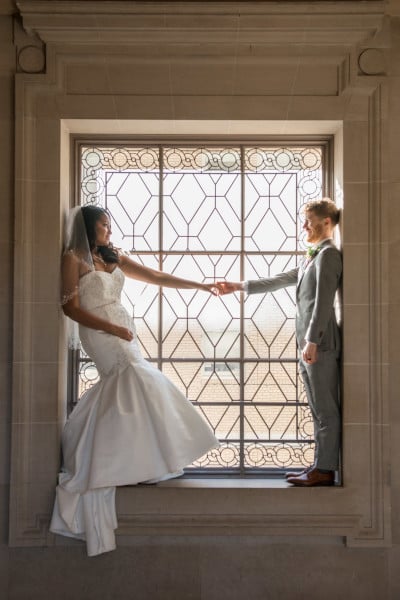
It’s not perfect all the time: Our differences are most pronounced at family functions or events rooted in family tradition, like weddings, funerals, and Christmas. For example, funerals between our families are very different. Growing up, funerals were very emotional in every sense of the word. The funeral itself was filled with gospel music, elaborate caskets, and decor, and often the only thing that would drown out the music was the wailing of someone’s elders. After the funeral, we’re typically having a ‘celebration of life,’ with music, pictures, and remembering the person with jovial laughter. We call it someone’s ‘Homecoming.’ But when I attend funerals on Jordan’s side of the family, it tends to be a quiet mourning, more reserved. We still pay respect, but there is a more somber tone than I grew up with.
And then there is the food: All I will say is, my family’s food hits different. I’m #teamdressing all day. (But I love you, Clark family.)
Next is something more specific to me and Jordan—talking politics with our family members. My parents and I share the same political beliefs, so “fighting about politics” wasn’t something I had to endure in my life. (From what I hear, I am very lucky.) Jordan, on the other hand, has had very heated arguments with his family. While accepting of all people, his family holds political beliefs that are pretty opposite to ours. It was difficult to explain to them that, despite it being 2021, we do not live in a post-racial society. We’ve had to help them understand that things didn’t change once Obama was elected into office.
At the end of the day, an interracial marriage is like any marriage: It comes down to expectations, communication, and commitment. The music we play may be different (I now know every word to “Sweet Caroline”), but the love supersedes any differences we have.

